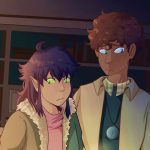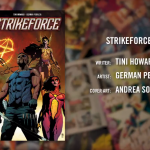Free Queer Indie Games
There are many free indie games available online: some better than others. I generally like pretty graphics and strong story lines, which aren’t generally the focus of free games. However, there are many areas not covered in games made by companies trying to sell to large audiences, or if they include them, it often ends up feeling inaccurate or stereotyped. In this article I’m talking about LGBT/MOGAI storylines, themes, and characters.
Even when the game avoids those pitfalls, the MOGAI element is generally a fairly small portion. Sure, there is Dragon Age: Inquisition and Fall Out: Las Vegas (and the other Dragon Age and Fall Out games) but those are the only ones I can think off the top of my head.
While in both of those queerness is normalized to a degree, the focus is on other elements. That can be good, but sometimes (read: often) I want more queerness and in pretty much any game I play where it would be relevant. So in my grand hunt for more, I wandered into the area of indie games, specifically free ones, and some of which get a little odd. Compared to the “typical” video game these don’t fit neatly into boxes. They are indeed a little queer (sorry, not sorry).
–
Coming Out Simulator 2014 (henceforth referred to as COS2014) works to complicate some of the commonly held ideas about coming out. People often encourage coming out indiscriminately when there are often very good reasons for people to stay in the closet, especially minors.
In fact, twenty percent of homeless youth are LGBT while only ten percent of the general youth population are LGBT. COS2014 also plays with the idea of a pure “truth” and the accuracy of memory, like many autobiographical video games do, and thus encourages multiple play-throughs. It consists of various conversational options that ultimately create large differences in the behavior of in-game characters. In some ways it could be considered more of an interactive story than a usual video game. COS2014 is public domain, although Case (the creator) accepts donations.
This game is pretty emotionally intense (depending to a degree on choices made by the player). There are endings where the main character is hit by his father. There are no endings where everything goes well or even most things go well.
–
The next game I’m going to recommend is in some ways similar to COS2014, insofar as it’s about conversations with a parent about one’s queer identity. It’s called Conversations with My Mother, and it was made by Merritt Kopas. It’s built on Twine, and you follow a conversation between Kopas and her mother, although you only see what her mother is saying. There are some sections of what her mother says that are in pink that can be altered by the player, which changes the narrative path.
Interestingly once you get to the end of the play-through, you are linked to a tweet from Kopas that is relevant to the most recent play-through. Those were in some ways the hardest hitting segments for me. This game contains misgendering. It functions best through at least a few replays.
–
Created by Mattie Brice, Mainichi is a semi-autobiographical game where you play through a few hours in the life of a mixed race trans woman. You have choices before you leave the house, like whether to put on makeup or eat before you leave to meet your friend for coffee. Some of these choices affect how you are perceived and treated by people you interact with.
Sometimes the barista misgenders you. Sometimes she doesn’t. One full play through is pretty short even if you try every available option. At the end of the game it restarts, allowing you to relive that morning again and make different choices. Some events don’t change, regardless of which options you choose. It gave me a few feelings. There are instances of street harassment and misgendering.
–
Sabbat is in some ways one of the more odd games that I’m mentioning here, but it’s also one that I had a lot of fun with. It’s all text, and you get to make a deal with demons in order to become a creature of (maybe) evil. You physically transform in way that is strongly body horror.
I’m usually sensitive to that and it didn’t bother me too much here. I would call it a queer narrative for sure, and in some ways a particularly trans narrative. It starts, for example, by asking what genitalia you have. This may not be something you are okay with, although you are never gendered within the game. I’ve followed through with both options that are available in-game, and it does change some of the later text. All of the prose is written in second person.
It may seem like I’m adding many more caveats to this one than the other games, which is fair. This isn’t for everyone, but I also found it distinctly enjoyable and often amusing. It is absolutely NSFW for some sexual behavior, drug use, murder, and your body literally transforming into a monstrous creature. This is all treated with a deft hand and a lighter touch than you may be expecting from a game that starts with you summoning dark forces. Sabbat was created by Oh No Problems or Eva Problems.
–
Embric of Wulfram Castle is an odd not-quite-RPG. There are minimal fights and it’s so meta it hurts (one character mentions there being a veritable “plague of narrators” while another mentions his bestselling book “Rocks Fall and Everyone Dies”).
The protagonist, the Duchess of Elstwhere, either gets down to her underwear or strips completely during pretty much every quest (although she is a pixelated character so it’s not actually erotic; it’s still not technically SFW). Characters get drunk, and as previously mentioned, naked, and it could all be so easily irritating or embarrassing. Yet somehow, it’s not. Mostly it’s just goofy, and really fun.
The game was made with RPG Maker 2003, which means it is Windows only, and I was unable to find it in a wine skin (which I did find for Mainichi) or anything like that, though others may have better luck. Until then, it’s Windows only unless you run a split system or work with a better emulator than I found. The games creator is Saint Bomber.
–
Queers in Love at the End of the World has a relatively self-explanatory title. You have ten seconds to play, choosing various text options that result in more choices. At the end of the game, the world ends and you can decide to play again and make different choices.
There is nothing you can do to stop the world ending. Your options are only related to how you spend the end of the world with your lover. The time limit makes the game both more anxiety-causing for me, and gives a stronger emotional impact, especially in my initial play-through. Anna Anthropy is the creator of Queers in Love at the End of the World.
–
Lim is a game that reads as very simplistic, at least initially. You are a square trying to navigate a maze. There are other squares, and when they see you they attack, bludgeoning you, unless you press “Z.” This causes you to camouflage yourself, but it also make the camera zoom and jerk around. This game does contain flashing lights and shaking effects.
Ultimately, there is no good solution, though tactics to get by may vary. This reads as very familiar to a queer person, who frequently has the choice between lying about one’s identity or being harassed. Often it’s a matter of physical safety. It’s another game by Merritt Kopas.
–
These games run the gamut from simple to bizarre, with varying amounts of emotional effect. A few made me tear up and some of them made me laugh out loud. They are all here and queer. If you like these games, many of the creators have other games available to play for free or purchase cheaply. Do you have games with major queer themes or characters to recommend?
Author: Gale Turner
Help support independent journalism. Subscribe to our Patreon.
Copyright © The Geekiary
Do not copy our content in whole to other websites. If you are reading this anywhere besides TheGeekiary.com, it has been stolen.Read our







